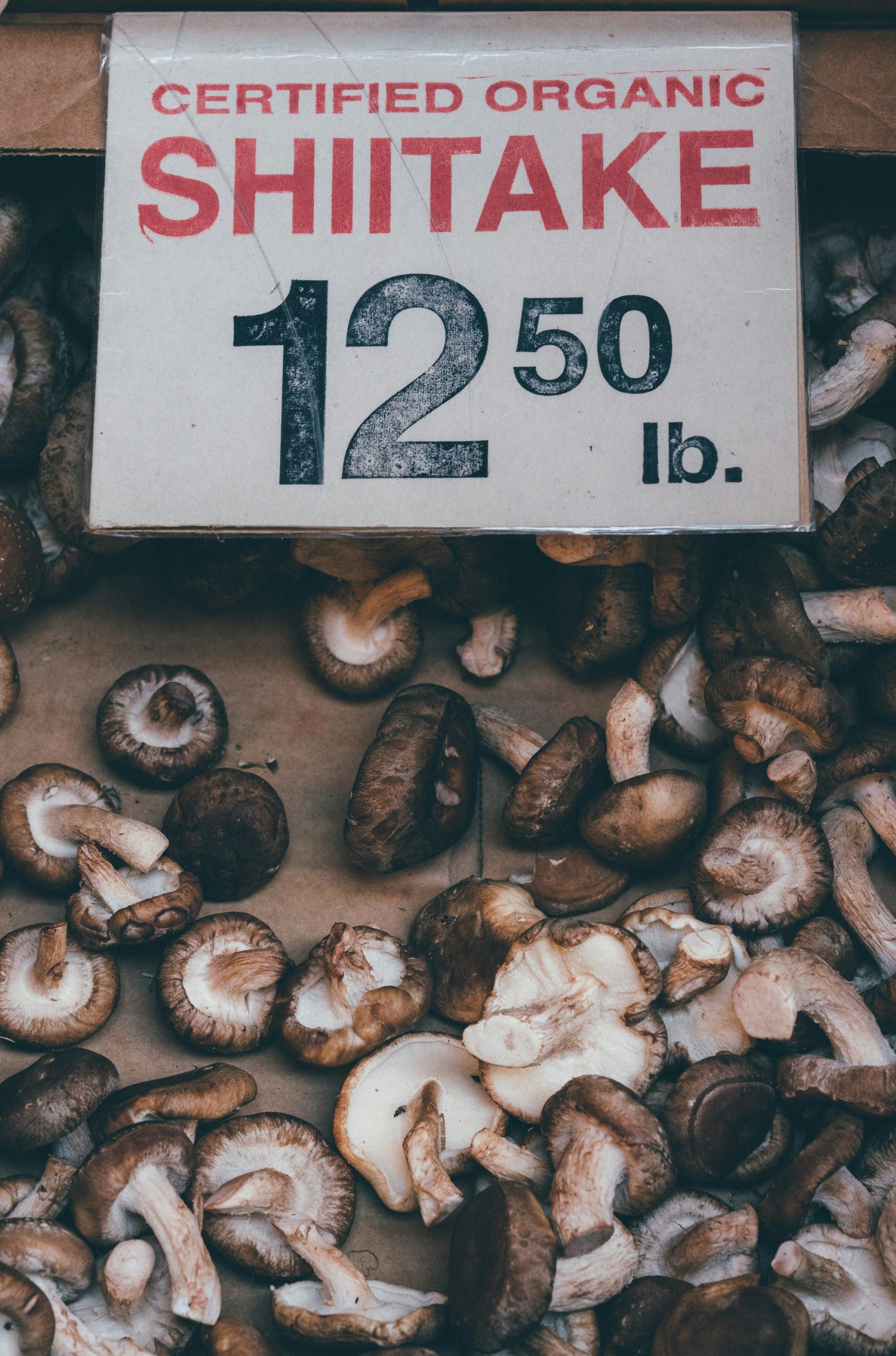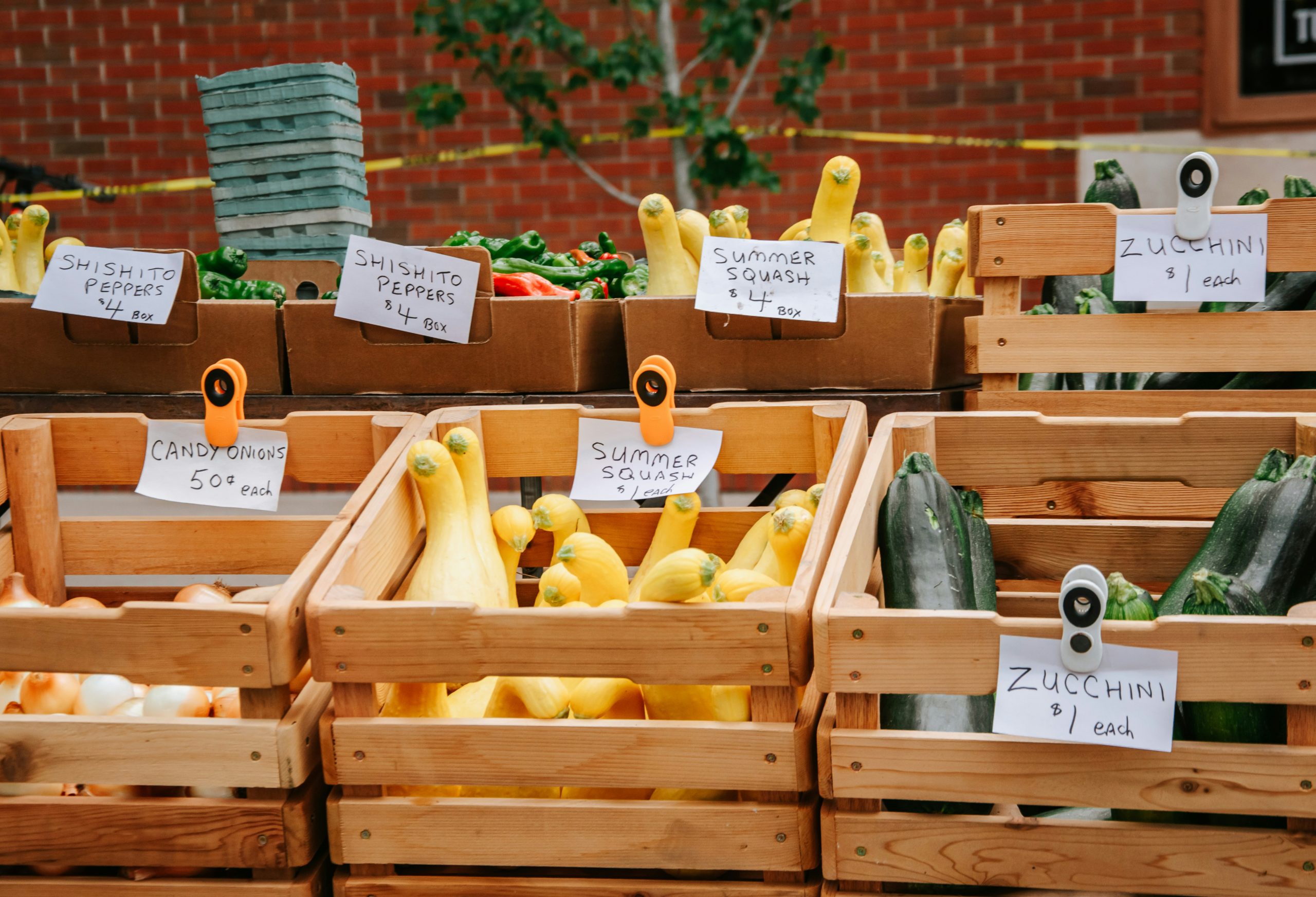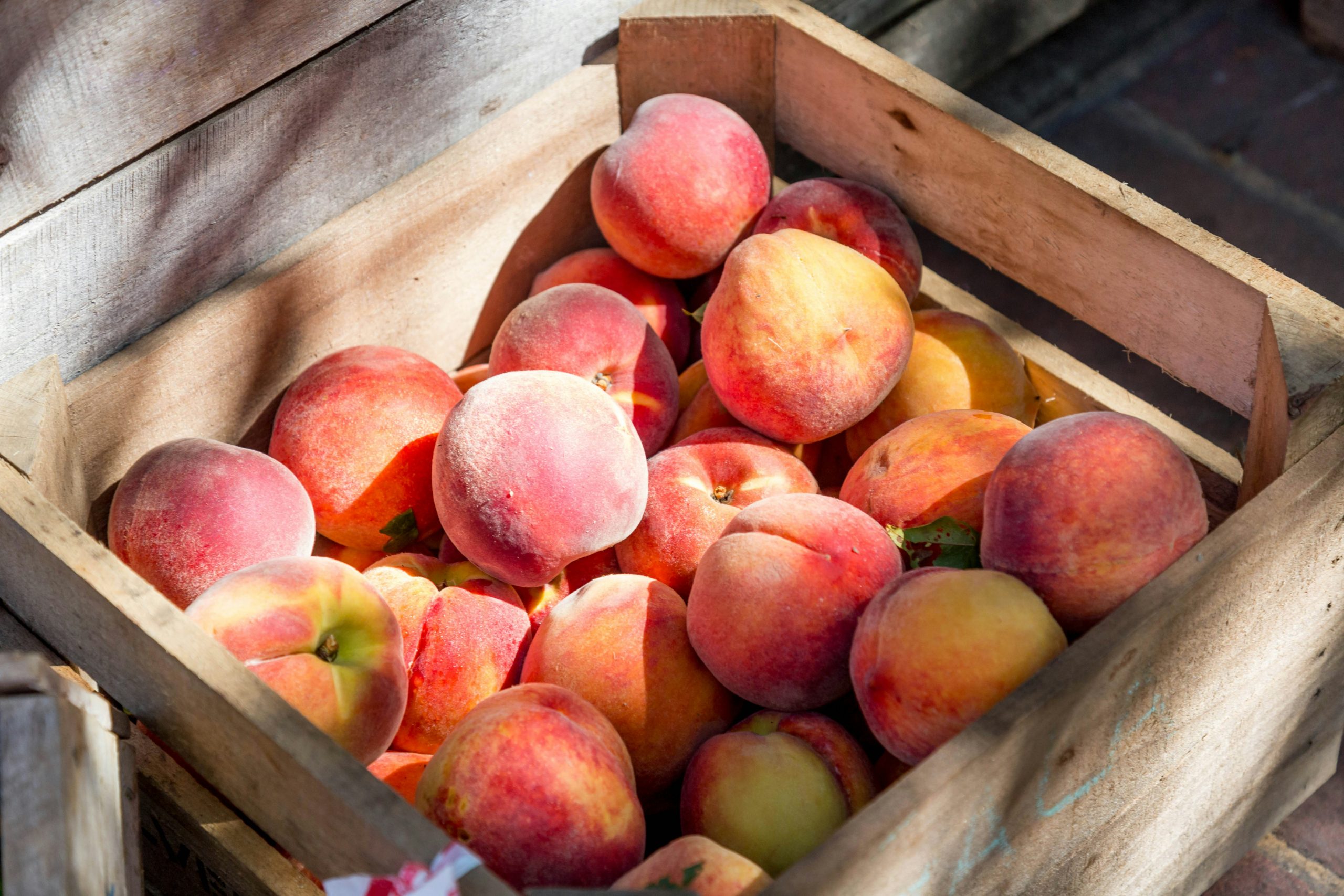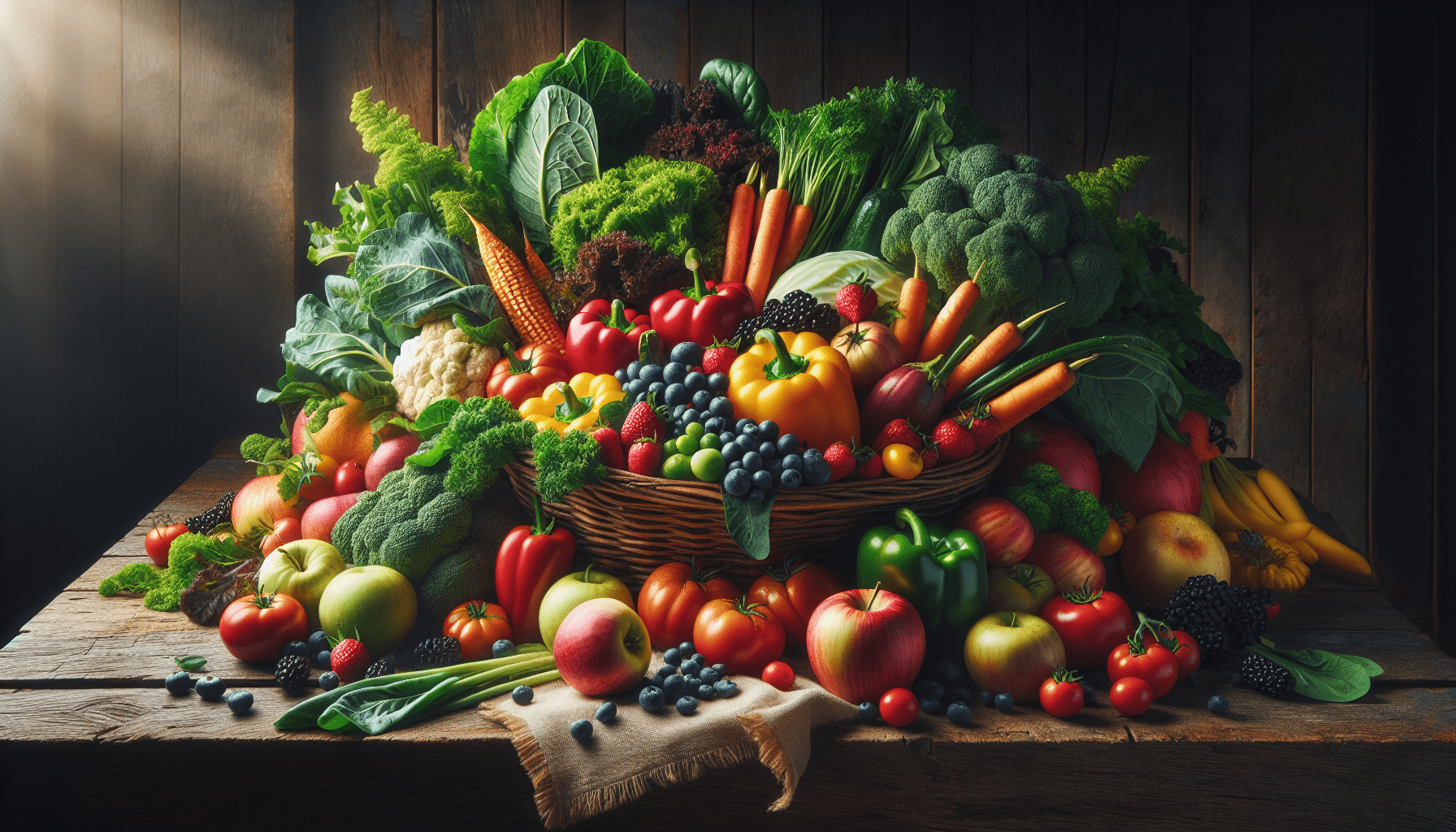What are the best organic foods for a balanced diet? This question is at the forefront of many of our minds as we seek to make healthier choices for ourselves and our families. With the increasing popularity of organic foods, it’s essential to understand which options provide the most nutritional benefits and how they contribute to a balanced diet. Together, let’s explore the wonderful world of organic foods and discover how they can enhance our overall well-being.
Understanding Organic Foods
Before we jump into specific foods, let’s clarify what makes a food “organic.” Simply put, organic foods are grown and processed without synthetic fertilizers, pesticides, genetically modified organisms (GMOs), antibiotics, and growth hormones. This farming approach promotes ecological balance, conserves biodiversity, and supports various health benefits.
Benefits of Organic Foods
Organic foods are more than just a trend; they offer tangible benefits:
- Fewer Pesticides: Organic foods tend to have lower levels of pesticides.
- Freshness: Often fresher because they don’t contain preservatives that make them last longer.
- Better for the Environment: Organic farming practices reduce pollution and conserve water and soil quality.
- Animal Welfare: Livestock raised organically have better living conditions.
The Importance of a Balanced Diet
Before we make recommendations, it’s crucial to understand the importance of a balanced diet. A balanced diet is one that gives our body the nutrients it needs to function correctly. It doesn’t involve excluding food groups but incorporating a variety of nutrients in the right proportions.
Core Components of a Balanced Diet
A balanced diet includes:
- Fruits and Vegetables: Rich in vitamins, minerals, and antioxidants.
- Proteins: Essential for muscle development and repair.
- Carbohydrates: Primary source of energy.
- Fats: Necessary for brain health and energy.
- Dairy or Dairy Alternatives: Important sources of calcium and vitamin D.

The Best Organic Foods for a Balanced Diet
Let’s break down some of the best organic foods from each major food group to understand their specific benefits and why they deserve a place on our plates.
Organic Fruits
Fruits are an integral part of a balanced diet, providing essential vitamins, minerals, and fiber.
Organic Apples
Organic apples are a great choice as they often have fewer pesticide residues. They are rich in fiber, vitamin C, and various antioxidants. Apples can aid in digestion, boost heart health, and even assist in weight management.
Organic Berries
Berries like strawberries, blueberries, and raspberries are loaded with antioxidants and vitamins. Organic berries often have higher antioxidant levels than their non-organic counterparts and are less likely to be contaminated with pesticide residues.
Organic Vegetables
Vegetables should be a cornerstone of our diet, offering a range of nutrients that support overall health.
Organic Spinach
Spinach is a nutrient powerhouse, providing vitamins A, C, and K, as well as folate, iron, and calcium. Organic spinach typically contains higher levels of these nutrients compared to conventionally grown spinach.
Organic Carrots
Carrots are another excellent choice. They are high in beta-carotene, which our body converts into vitamin A. Organic carrots often have a richer flavor and better texture, thanks to the absence of synthetic chemicals.
Organic Proteins
Protein is vital for muscle repair, immune function, and enzyme production.
Organic Chicken
Organic chicken is raised without antibiotics or growth hormones. It’s a lean protein source that can be used in various dishes. The meat tends to be more tender and flavorful.
Organic Beans
Beans like black beans, chickpeas, and lentils are excellent plant-based protein sources. Organic beans are grown without synthetic pesticides and fertilizers, making them a healthier choice for us and the environment.
Organic Grains
Grains are a significant energy source and provide essential nutrients.
Organic Quinoa
Quinoa is a complete protein, meaning it contains all nine essential amino acids. It’s also rich in fiber, magnesium, and antioxidants. Organic quinoa is a better choice as it’s grown without harmful pesticides.
Organic Brown Rice
Brown rice is a whole grain that provides more fiber and nutrients than white rice. Organic brown rice ensures we are not ingesting potentially harmful chemical residues.
Organic Dairy and Dairy Alternatives
These are crucial for bone health, offering calcium and other vital nutrients.
Organic Yogurt
Organic yogurt is made from the milk of cows that are fed organic feed and are not treated with antibiotics or synthetic hormones. It’s rich in probiotics, essential for gut health, and provides a good amount of protein and calcium.
Organic Almond Milk
For those avoiding dairy, organic almond milk is an excellent alternative. It’s typically fortified with calcium and vitamin D, essential for bone health. Organic almond milk avoids harmful pesticides used in conventional almond farming.
Organic Nuts and Seeds
Nuts and seeds are fantastic sources of healthy fats, proteins, and minerals.
Organic Almonds
Almonds are nutrient-dense, offering healthy fats, protein, vitamin E, and magnesium. Organic almonds are grown without synthetic pesticides, making them a healthier choice.
Organic Chia Seeds
Chia seeds are rich in omega-3 fatty acids, fiber, and protein. They can be added to smoothies, oatmeal, and various baked goods. Organic chia seeds ensure we get these benefits without harmful chemicals.
Incorporating Organic Foods into Our Diet
Eating organic doesn’t have to be complicated or expensive. Here are some practical tips to incorporate organic foods into our diet seamlessly.
Plan Meals Around Organic Ingredients
Start by planning meals that revolve around organic ingredients. For example, a salad with organic spinach, quinoa, and almonds can be a nutritious, balanced meal.
Buy in Season and Locally
Purchasing organic foods in season can be more cost-effective and ensure we get fresh produce. Local farmers’ markets are an excellent place to find seasonal organic options.
Prioritize
If budget constraints exist, prioritize buying organic versions of foods that typically have higher pesticide residues. The Environmental Working Group’s (EWG) Dirty Dozen list is a helpful resource for this.
| Produce | Why Prioritize Organic? |
|---|---|
| Strawberries | Often have high pesticide residues. |
| Spinach | Frequently tested for pesticide contamination. |
| Apples | High levels of pesticide residue. |
| Grapes | Pesticides used in grape farming can be harmful. |
| Tomatoes | Often sprayed with pesticides. |

Preparing and Cooking Organic Foods
The way we prepare and cook our food can also impact the nutritional benefits we receive. Here are some tips for getting the most out of our organic foods.
Washing and Storing
Even organic fruits and vegetables should be washed thoroughly to remove dirt and bacteria. Proper storage can also help retain their freshness and nutrients.
Cooking Methods
Certain cooking methods can help preserve the nutrients in our organic foods:
- Steaming: Retains more vitamins compared to boiling.
- Grilling/Broiling: Can help retain protein content in meats.
- Sautéing/Stir-frying: Uses less oil and preserves a greater amount of vitamin content.
The Impact of Organic Foods on Health
Beyond nutritional content, consuming organic foods can have other health benefits. Understanding these impacts can motivate us to make more organic choices.
Reduced Ingestion of Harmful Chemicals
Organic foods reduce our exposure to harmful pesticides and chemicals. This is particularly important for children, pregnant women, and those with compromised immune systems.
Better Nutrient Profiles
Research suggests that organic produce can have higher levels of certain nutrients, including antioxidants, vitamin C, and omega-3 fatty acids, compared to conventionally grown produce.
Improvement in Food Allergies and Sensitivities
For some, switching to organic foods can reduce the severity of food allergies and sensitivities. This could be due to the absence of synthetic additives and pesticides.

Addressing Common Concerns about Organic Foods
Some common concerns about organic foods can deter people from making the switch. Let’s address these to help make informed decisions.
Cost Concerns
While organic foods can be more expensive, there are strategies to manage costs, like buying in season, bulk purchasing, and focusing on certain high-risk items to buy organic.
Availability
Organic foods are becoming more widely available. Many grocery stores now have a dedicated organic section, and online retailers offer a range of organic products.
Benefit Justification
Some wonder if the benefits justify the cost. Considering the long-term health benefits, environmental impact, and superior taste, many find the additional expense worthwhile.
Recipes to Get Started with Organic Foods
To help us kickstart our journey, here are some simple and delicious recipes using organic ingredients.
Organic Quinoa Salad
Ingredients:
- 1 cup organic quinoa
- 2 cups water
- 1 cup organic cherry tomatoes, halved
- 1 organic cucumber, diced
- 1/4 cup organic red onion, finely chopped
- 1/4 cup organic feta cheese
- 2 tablespoons organic olive oil
- 1 tablespoon organic lemon juice
- Salt and pepper to taste
Instructions:
- Rinse the quinoa thoroughly and cook it in water according to package instructions. Let it cool.
- In a large bowl, combine the cooked quinoa, tomatoes, cucumber, red onion, and feta cheese.
- Drizzle with olive oil and lemon juice, and season with salt and pepper.
- Toss everything together and serve chilled.
Organic Chicken Stir-Fry
Ingredients:
- 1 lb organic chicken breast, sliced
- 1 cup organic broccoli florets
- 1 organic bell pepper, sliced
- 1 organic carrot, julienned
- 2 tablespoons organic soy sauce
- 1 tablespoon organic honey
- 1 tablespoon organic olive oil
- 2 cloves garlic, minced
- 1 teaspoon grated organic ginger
Instructions:
- Heat olive oil in a large skillet over medium heat.
- Add chicken and cook until no longer pink.
- Add broccoli, bell pepper, and carrot; stir-fry for about 5 minutes.
- In a small bowl, mix soy sauce, honey, garlic, and ginger.
- Pour the mixture over the stir-fry and cook for an additional 3-4 minutes.
- Serve hot with a side of organic brown rice.

Conclusion
Choosing organic foods can significantly enhance our diet’s quality and our overall well-being. While it may require some planning and adjustment, the benefits make it a worthwhile endeavor. From fruits and vegetables to proteins and grains, incorporating organic foods into our daily meals can lead to a more balanced, nutritious, and healthy lifestyle for us all.
By making informed choices and adopting practical strategies, we can seamlessly integrate organic foods into our diets, supporting both our health and the environment. Let’s continue to educate ourselves, understand the importance of what we consume, and make conscious decisions that benefit our bodies and our planet.



